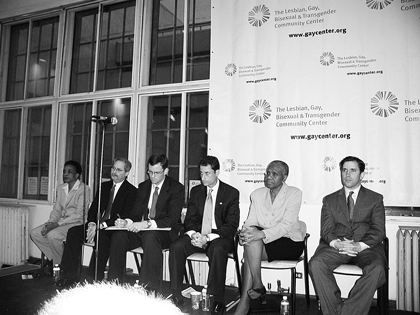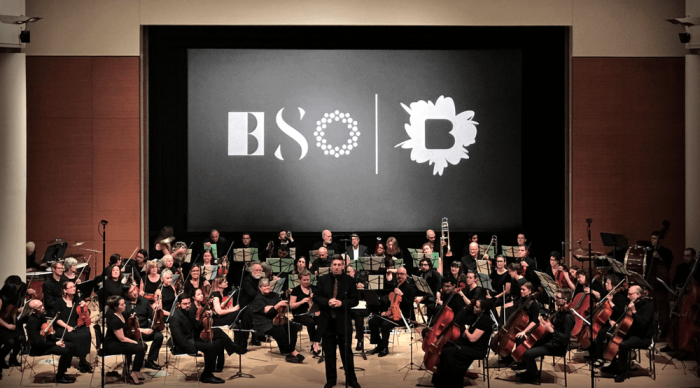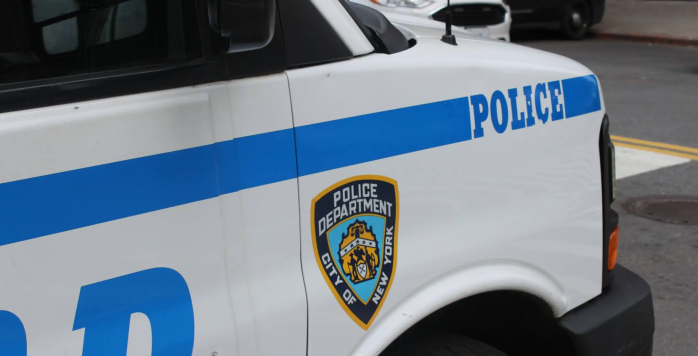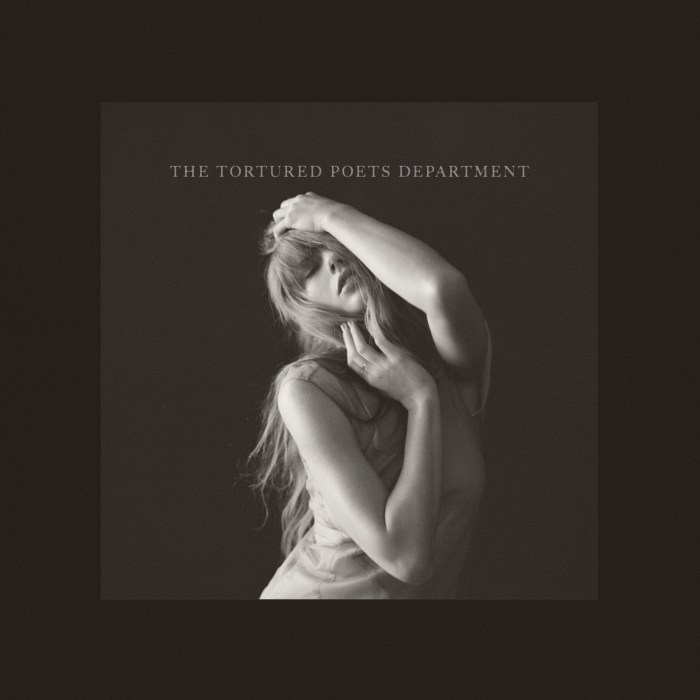Bipartisan Mayoral Forum Upstaged By Demand For School Protections
It was an evening intended to be about the candidates—an event that included not only the four Democrats seeking Michael Bloomberg’s job this November, but also a maverick Republican waging a quixotic challenge within his own party and a high-level surrogate for the mayor himself.
The forum held Monday evening at the Lesbian, Gay, Bisexual and Transgender (LGBT) Community Center, and sponsored by the Center, the Empire State Pride Agenda and a host of other groups, was the first chance this year for the queer community to hear a frank exchange among members of both political parties about November’s mayoral race.
However, the evening’s high point turned out to be an angry and insistent, yet determined demonstration by nearly a dozen young people from Queens demanding to know why the mayor is fighting implementation of the Dignity for All Students Act (DASA), an ordinance passed last year over Bloomberg’s veto, that aims to protect public school youth, specifically including gay, lesbian and transgendered students, from harassment and bullying.
The young demonstrators are affiliated with Generation Q, a drop-in and outreach program located on Steinway Street in Astoria that includes social and political initiatives and is funded by the Forest Hills Community House. As Miriam Yeung, the Center’s director of public policy and governmental relations and the forum’s moderator, began asking the panelists questions from the audience, following brief introductory remarks from the five candidates and the mayoral surrogate, Cynthia McBride, a Generation Q member, stood up and said her group wished to ask their question directly. She held aloft a sign reading “Kids Scream Dyke At Me In the Halls,” a phrase that she said aloud before moving to the front of the hall. Five of her colleagues held up similar signs, including one that read, “When My Classmates Say Homophobic Remarks, Teachers Agree,” and joined McBride at the front of the gathering.
The demonstration, which the six young people holding the signs and another half dozen of their colleagues sustained for the remainder of the evening, placed powerful focus on the issue of LGBT youth and their safety in school and on the streets. Even Bloomberg’s representative on the panel, city Human Resources Administration Commissioner Verna Eggleston, who previously spent seven years as executive director of the Hetrick-Martin Institute, that serves queer youth and runs the Harvey Milk High School, joined in the applause for the young demonstrators.
Eggleston was careful in her response to their question to emphasize that she was applauding their courage in standing up for themselves, and after the forum the commissioner specifically underscored that point directly to Gay City News, saying her praise of the young people should not be construed as disagreement with Bloomberg for his DASA veto.
In fact, throughout the evening, Eggleston, who is a lesbian, emphasized that her years as an advocate for LGBT youth positioned her to offer direct testimony in support of the administration she has served for more than three years. As she concluded her comments on DASA, the commissioner, looking toward the demonstrators holding their signs high over their heads, said, “You come with me and we will sit with the mayor and I will let him hear you, because he has not heard this message from you.”
One of the young demonstrators responded, “Let’s go. We’re ready to go,” a sentiment repeated several times later in the forum.
According to Keith Mulet, a 19-year-old graduate of Andrew Jackson High School in Queens who now attends John Jay College and held up the sign reading “We Need DASA” on Monday, the group approached Eggleston afterward to set up a meeting with the mayor. An aide to the commissioner gave the young demonstrators Eggleston’s card, but said her office would get in touch with them.
“We don’t believe it,” Mulet said.
Marisa Ragonese, who runs Generation Q and was also at the Monday night forum, said about a dozen members of the group are meeting this week to press not only Eggleston, but all of the politicians who spoke, to be “accountable for the things they said in front of the room.”
The protest from Generation Q came during an evening when other fault lines shaping the nascent mayoral campaign also came under a spotlight.
Former Bronx Borough Pres. Fernando Ferrer, whom public opinion polls have shown to be the early leader in the scramble for the Democratic nomination in September’s primary, faced both an audience question and an anonymous flyer raising the issue of his support for State Sen. Ruben Diaz, a fiery Bronx Pentecostal minister, who has repeatedly clashed with the gay community—most recently in his denunciation of public funds for the Harvey Milk High School and his efforts organizing a massive demonstration outside the Bronx County Building in opposition to same-sex marriage. Ferrer noted that on repeated instances he denounced homophobic statements from Diaz and had himself been a target of right-wing wrath at the Bronx anti-marriage rally.
The flyer linking Ferrer to Diaz also mentioned a vote he made as a city councilman in 1986 on an amendment to the city gay rights ordinance that would have exempted three and four-family rental apartments from non-discrimination provisions had it not been vetoed by then-Mayor Ed Koch. At an April 6 LGBT mayoral forum, Ferrer, in response to a challenge from longtime activist Allen Roskoff, defended that vote as necessary to hold together what he called a “fragile coalition” willing to move the gay rights measure forward.
The day after this week’s forum, state Assemblywoman Deborah Glick, a Ferrer supporter, contacted Gay City News to denounce what she termed “a scurrilous flyer” that aimed to tie her candidate to Diaz, while failing to note that City Council Speaker Gifford Miller has also shown the Pentecostal minister some political support, including a committee chairmanship when he was a Bronx city councilman. Glick argued that Diaz won the former borough president’s support because he was “the lesser of two incredibly bad choices” when running against former state Sen. Pedro Espada Jr., who faced a variety of ethics charges, none of them proven.
Glick also said the appearance of an unsigned flyer resurrected memories of the nasty Democratic mayoral runoff in 2001 between Ferrer and former Public Advocate Mark Green. She supported Green in that contest, but said that when anonymous flyers surfaced with crude caricatures of Ferrer and his then-supporter Rev. Al Sharpton, she “felt shamed and embarrassed.” Glick said, “People try not to have their fingerprints on flyers that are both inaccurate and destructive.”
Ferrer also faced a question shouted from the audience about his recent statement that the 1999 killing of Amadou Diallo, an African resident of the Bronx, by police who said they thought, incorrectly, he was reaching for a weapon, was not a crime, despite his harsh criticism of police actions at the time. The former borough president responded, “I would gladly put on handcuffs and get arrested again,” a reference to his role in 1999 demonstrations at One Police Plaza, but his answer was nonetheless met with scattered heckling. In an evening in which he earned applause for his stout opposition to a West Side Stadium—“I want to create jobs not just selling beer and Cracker Jacks at the Jets Stadium”—and for emphasizing that he has supported gay marriage longer than any other candidate in the race, Ferrer did not generate nearly the enthusiasm Monday that he did two months ago at a gay marriage rally at the Center—weeks before his Diallo comment.
Gifford Miller appeared to be one of the candidates who gained ground in the wake of Ferrer’s recent difficulties. In a series of statements and responses that were crisp and impassioned, the City Council speaker emphasized his accomplishments in four years as leader of the city’s legislative branch and repeatedly faulted the mayor for “wrong choices.” He mentioned the Council’s passage of the city’s first transgender rights law, a measure that recognizes out-of-state gay marriages and civil unions for purposes of the local domestic partner law, the Equal Benefits Law, which would give gay and lesbian employees of city contractors domestic partner benefits equal to the spousal benefits their employers offer, and DASA. Miller noted that Bloomberg has taken the contractor law to court (where the mayor an important early skirmish) and is refusing to implement DASA.
“I am sick and tired of trying to stop this mayor from doing the wrong thing,” Miller said, to strong applause, pointing out that the administration’s preliminary budget would zero out a $670,000 appropriation the Council made last year to address the growing scourge of crystal meth addiction among gay men.
Miller also returned a favorite line of attack he has used ever since Bloomberg decided to appeal a February lower court ruling in favor of same-sex marriage. The speaker has repeatedly criticized the mayor’s refusal to state his personal view of gay marriage until he made the move to appeal the greatest gay rights victory in New York history, when he said he supports it. The equivocation and maneuvering, Miller said, “shows a fundamental misunderstanding of what being mayor of New York City means. It’s a privilege with the responsibility to speak out for all of the people of New York City.”
C. Virginia Fields, the Manhattan borough president, also made a full-throated appeal for support from LGBT voters that found resonance in the audience. Pointing to her 16 years of elective office, eight as borough president and eight on the City Council, she spoke about work she did while on the Council to strengthen the Civilian Complaint Review Board that investigates allegations of police misconduct and also voiced support for a new $2.5 million initiative by Manhattan City Councilman Alan Gerson to address the problem of homelessness among LGBT youth.
Fields also twice faulted Bloomberg for a lack of leadership, saying, in response to the question of DASA implementation, “the mayor needs to speak out against bullying,” and also that the nation’s urban advocates and big city mayors have been disappointed by the New York mayor’s failure to lead their charge in Washington.
Fields won her biggest hand when she told the crowd that she understood the effect of discrimination on people’s lives being an African-American woman who grew up in the South as the civil rights movement was first gaining momentum.
Anthony Weiner, the congressman who represents portions of Brooklyn and Queens and is the fourth Democrat in the mayoral race, echoed Fields’ critique of Bloomberg for his failure to advocate better for New York among his fellow Republicans. Recalling the mayor’s role in hosting last year’s Republican National Convention, Weiner characterized Bloomberg as someone “who says everything is great in George Bush’s America,” and quickly added, “It’s not.”
Accusing Bloomberg of having overseen an “imperial mayoralty,” Weiner twice faulted the Republican for not attending Monday evening’s forum.
On same-sex marriage, Weiner repeated an assertion he made in the previous week’s LGBT forum, that he won his first election to Congress in 1998 not “in spite of my support for gay marriage, but because of it,” even though his district includes many Orthodox Jews as well as culturally conservative Irish and Italian Catholics, and one of his opponents, former City Councilman Noach Dear, worked hard to exploit his stand on the issue.
In criticizing Bloomberg’s appeal of the February gay marriage court ruling, Weiner said the move denied the gay community the ability to prove “that the sky didn’t fall” and therefore “did tremendous harm to the cause.”
Another participant in the Monday forum was Steve Shaw, a Republican investment banker challenging Bloomberg in the September primary on a platform focused on lower taxes and job development. Shaw, who favors same-sex marriage, started the evening off trying to challenge “the notion that Democrats are always good for the gay community and Republicans are always bad.” That message was met with hisses and shouts from the get-go, and Shaw only made things more difficult for himself when he stressed “personal responsibility” against “irresponsible sexual behavior” in response to a question about crystal meth and HIV transmission, endorsed a time limit on welfare benefits, and said, “I don’t think the Harvey Milk School is a good idea,” emphasizing instead the need for integration in society. By the end of the evening, the Republican had grown visibly weary from wearing his contrarian mantle, and challenged the audience, saying, “This community talks about tolerance. Everyone needs to be tolerant to you, but were you tolerant to me?”
For her part, Eggleston remained unperturbed throughout an evening in which her boss was repeatedly raked over the coals.
Admitting, “I came out a long time ago as a Republican,” the city welfare chief argued, “This mayor is touching neighborhoods that have not been touched before” and that she belonged to “an administration of doing as opposed to an administration of presentation.”
In one typical response, Eggleston said that the mayor supports funding to address the crystal meth problem, “but targeted funding.”
“We need clear goals and objections,” she said, as she emphasized, “Bloomberg is a businessman, not a politician.”
gaycitynews.com


































